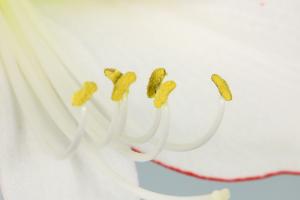Introduction
Plant cells are unique in their structures and functions. Unlike animal cells, they contain several specialized organelles that are exclusive to plants. In this article, we will explore what organelles are unique to plant cells and how they contribute to the growth and survival of these organisms.
Chloroplasts
Chloroplasts are one of the most distinctive organelles found only in plant cells. They are the sites where photosynthesis occurs, allowing plants to convert carbon dioxide into oxygen and glucose. Chloroplasts contain pigments called chlorophyll, which give plants their green color and are crucial for capturing sunlight. These organelles also contain thylakoids, which are stacks of membranous discs that house the machinery needed for photosynthesis to take place.
Central Vacuoles
Central vacuoles are another specialized organelle found only in plant cells. They are large, fluid-filled sacs that occupy most of the cell's volume. The central vacuole is responsible for many essential functions in plant cells, including maintaining turgor pressure, storing nutrients and waste products, and regulating cell pH. It also plays a critical role in plant growth by helping the cell expand, allowing new tissues to form and the cell to maintain its shape.
Cell Walls
The cell wall is a rigid layer surrounding the cell membrane of plant cells. It is responsible for providing structural support, protecting the cell from mechanical stress and invading pathogens, and limiting water loss from the cell. The cell wall is primarily composed of cellulose, a complex polysaccharide that gives it its rigid structure. While animal cells do have a similar structure known as the extracellular matrix, it is not as robust and does not serve the same protective and supportive functions as the plant cell wall.
Conclusion
Plant cells are specialized structures that contain several unique organelles critical for their survival and growth. Chloroplasts, central vacuoles, and cell walls are among the most distinctive features of plant cells, each playing a crucial role in their everyday function. The specialized structures of plant cells allow these organisms to carry out the process of photosynthesis, store nutrients and waste products, maintain turgor pressure, and protect themselves from invaders. Understanding plant cell structure and function is essential for uncovering the secrets of plant growth, nutrition, and health.

 how many times do yo...
how many times do yo... how many planted tre...
how many planted tre... how many pine trees ...
how many pine trees ... how many pecan trees...
how many pecan trees... how many plants comp...
how many plants comp... how many plants can ...
how many plants can ... how many plants and ...
how many plants and ... how many pepper plan...
how many pepper plan...






























